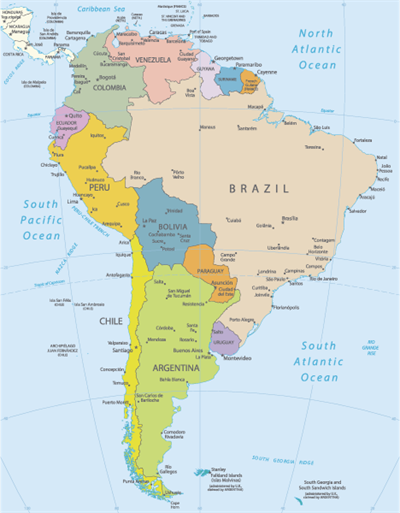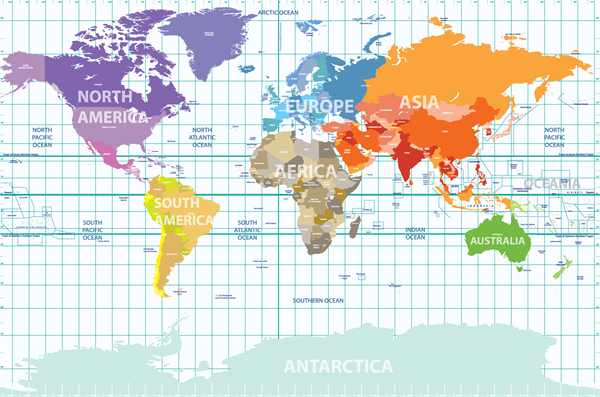PDF chapter test TRY NOW
We have toured and studied important features of North America such as location, vegetation, climate, resources etc. Now let's travel south and explore South America.
South America is the fourth-largest continent by land and the fifth-largest by population, behind Asia, Africa, and North America.
Unlike North America, the latitudinal location of the continent extends from the Northern to Southern Hemisphere. But, Most of the South American continent lies within the Southern Hemisphere and is called the “Southern Continent”. And longitudinally, the continent is located in the Western Hemisphere.
There are 12 countries in South America. South America is connected with North America via the Isthmus of Panama in the North West.
Central America and South America are together known as Latin America because it has been discovered and colonised mostly by the Latin’s (the Spanish and the Portuguese).
The Incas were the largest group of indigenous people in South America when the Europeans arrived.

The political division of South America
Latitudinal Extent:
| From | 12°N |
| To | 55°S |
Longitudinal Extent:
| From | 35°W |
| To | 81°W |
Important Latitudes:
| Latitudes | Passing Through |
| Equator (0°) | The mouth of the Amazon river |
| Tropic of Capricorn 23 and 1/2°S | Rio de Janeiro in Brazil |

World map with latitudes and longitudes
Shape of the continent: Inverted triangle
Area of the continent: 17,840, 000 Sq. Km. i.e. around 12\% of the land surface of Earth.
Area of the continent: 17,840, 000 Sq. Km. i.e. around 12\% of the land surface of Earth.
Important physical features that border South America:
Physical feature | Direction |
| Caribbean Sea | Northwest and North |
| Atlantic Ocean | Northeast, East, and Southeast |
| Pacific Ocean | West |
